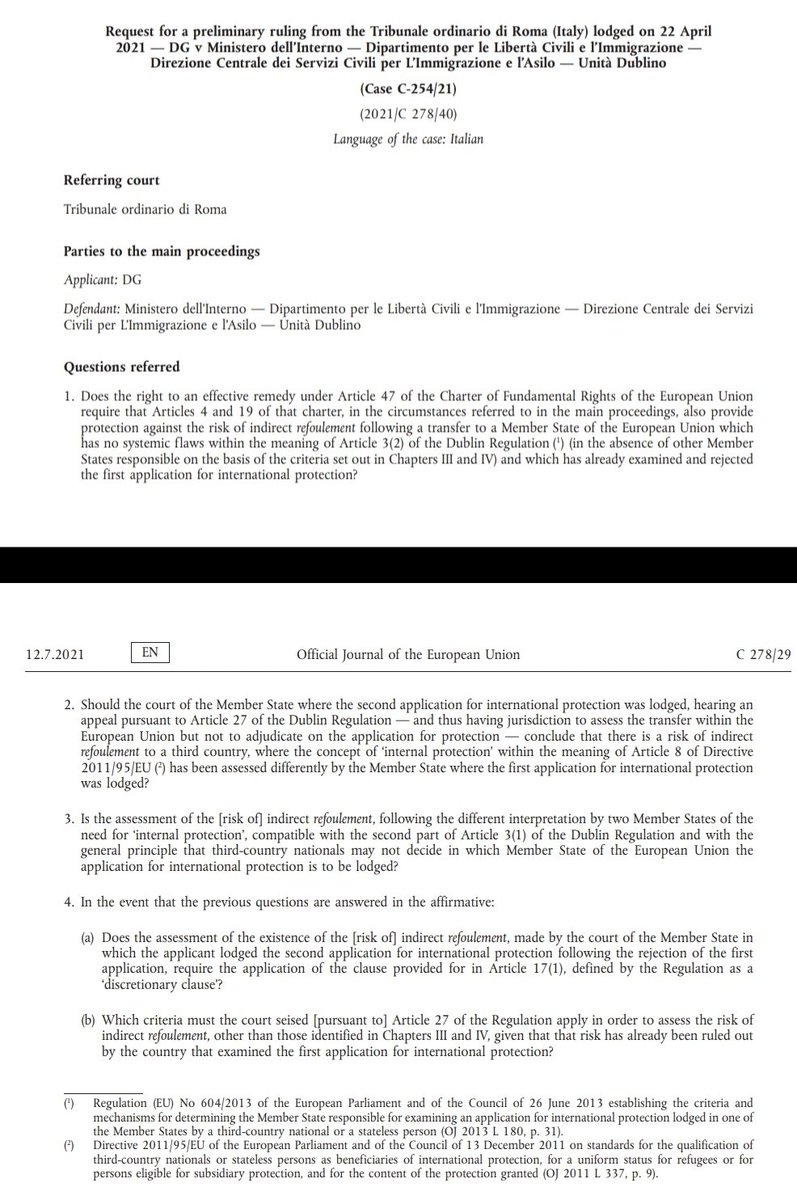
CJEU, new cases I
Are the requirements of free movement law for sufficient resources and comprehensive sickness insurance indirectly discriminatory against disabled people?
Are the requirements of free movement law for sufficient resources and comprehensive sickness insurance indirectly discriminatory against disabled people?

CJEU, new cases II
Asylum law: what's the impact of the pandemic on transfer of asylum seekers under the Dublin system?
Asylum law: what's the impact of the pandemic on transfer of asylum seekers under the Dublin system?

CJEU, new cases III
Can the transfer of asylum seekers be challenged on the grounds that the Member State which the asylum seeker will be transferred to will remove him/her to an allegedly unsafe non-EU country?
Can the transfer of asylum seekers be challenged on the grounds that the Member State which the asylum seeker will be transferred to will remove him/her to an allegedly unsafe non-EU country?

CJEU, new cases IV
Does the refugee law rule of protection from persecution on grounds of political opinion apply to corruption in a non-EU country ?
Does the refugee law rule of protection from persecution on grounds of political opinion apply to corruption in a non-EU country ?

• • •
Missing some Tweet in this thread? You can try to
force a refresh











